What is hearing loss?
Hearing loss, or hearing impairment, is a partial or total inability to hear. Hearing loss may occur in one ear or both. In children; hearing problems can greatly contribute to speech difficulties and in adults it can cause work and social related difficulties and challenges. A deaf person has little to no hearing. There are few types of hearing loss, conductive hearing loss, sensorineural hearing loss and mixed hearing loss.
In Malaysia, 1 of every 5 people has one level of hearing loss. Unfortunately, by far very few of this number have considered to find facts about their hearing loss and listen to professionals advice for hearing loss management options.
The onset of hearing loss can be congenital or acquired.
![hearing-loss-in-malaysia [trans]](https://innohear.com/wp-content/uploads/2020/06/hearing-loss-in-malaysia-trans.png)
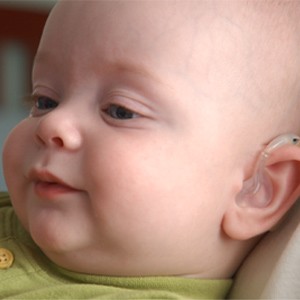
Nongenetic factors can account for about 25% of congenital hearing loss. Nongenetic factors that are known to cause congenital hearing loss include: maternal infections, such as rubella (German measles), cytomegalovirus, or herpes simplex virus, prematurity, low birth weight, birth injuries, toxins including drugs and alcohol consumed by the mother during pregnancy, complications associated with the Rh factor in the blood/jaundice, maternal diabetes, toxemia during pregnanc, lack of oxygen (anoxia)
Genetic factors (hereditary) are thought to cause more than 50% of all hearing loss. Hearing loss from genetic defects can be present at birth or develop later on in life. Most genetic hearing loss can be described as autosomal recessive or autosomal dominant. Other, more rare types of genetic hearing loss include X-linked (related to the sex chromosome) or mitochondrial inheritance patterns.
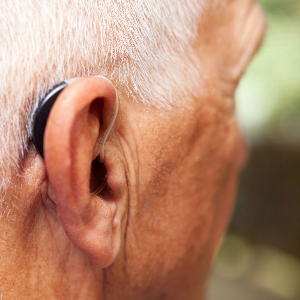
Refers to the hearing loss which occurs throughout the life. The onset of this kind of hearing loss can be sudden or progressive. The example of sudden onset hearing loss is usually caused by traumatic incident (e.g. vehicle accident, slapped/punched directly on the ear ;bullied victim, directly exposed to grenade explosion ;those involved in war), while the example for progressive hearing loss is those with acoustic neuroma (tumour on the eigth cranial nerve) whereby the hearing worsen by time, or elderly with presbycusis, hearing problem which happens due to aging factor, or those with cancer under chemotherapy treatment, the hearing loss will be progressively worsen
Types of hearing loss
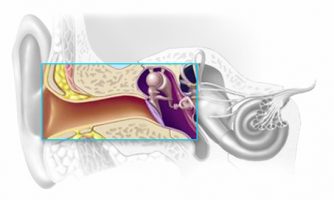
Conductive Hearing Loss
Conductive hearing loss happens when sound unable to transfer easily through the outer ear canal to the eardrum into the middle ear (through the ossicles). This will result in softer sound perceived by the individual with conductive hearing loss. The causes of conductive hearing loss includes presence of fluid in the middle ear from colds or allergies, ear infection (eg: otitis media), poor eustachian tube function, perforated eardrum, impacted ear wax (cerumen) and presence of foreign body in the ear canal. Some conductive hearing loss can be treated medically or surgically with tympanoplasty or stapedectomy, and the use of hearing aids and assistive listening devices may also be beneficial
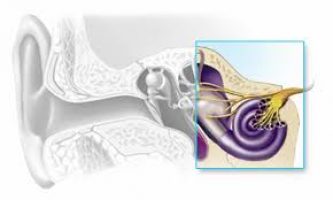
Sensorineural Hearing Loss
Sensorineural hearing loss happens when there is damage to the inner ear (cochlea) or to the nerve pathways from the inner ear to the brain. Most of the time, sensorineural hearing loss cannot be medically or surgically corrected. This is the most common type of permanent hearing loss and is typically irreversible. It tends to be unevenly distributed, with greater loss at higher frequencies. Individual with this kind of hearing loss will have reduced ability to hear faint sounds. The loudness of the speech might not be affected as much as the clarity of it. The possible causes of sensorineural hearing loss including consumption of drugs which are toxic to hearing or known as ototoxic drugs, hearing loss that runs in the family (genetic or hereditary), aging, head trauma, malformation of the inner ear and exposure to loud noise. Individuals with sensorineural hearing loss can be habilitated or rehabilitated with the use of hearing aids.
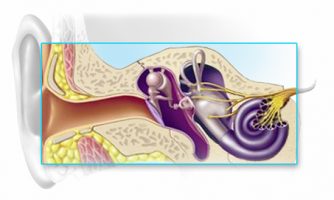
Mixed Hearing Loss
Mixed hearing loss occurs when a conductive hearing loss happens in combination with a sensorineural hearing loss. It indicates that, there may be damage in the outer or middle ear and in the inner ear (cochlea) or auditory nerve which result in the mixed type of hearing loss obtained.
Hearing loss can be managed with hearing aids which can be selected based on the severity of hearing loss (hearing loss level), wearer’s preference of size, style and affordability.
InnoHear offers wide range of quality hearing aids that would comply with your needs.
